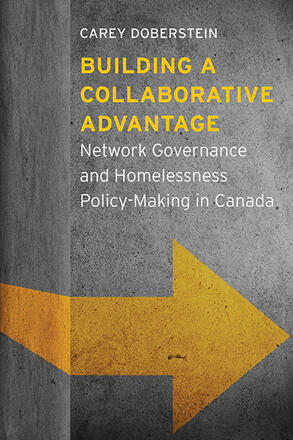
Building a Collaborative Advantage
Network Governance and Homelessness Policy-Making in Canada
This comparison of how three major Canadian cities have approached homelessness reveals that successful policy must be built on inclusive, collaborative decision making.
Description
Homelessness is not a historical accident. It is the disastrous outcome of policy decisions made over time and at several levels of government. Drawing on network governance theory, extended participant observation, and more than sixty interviews with key policy figures, Carey Doberstein investigates how government and civil-society actors in Vancouver, Calgary, and Toronto have organized themselves to solve public problems. He concludes that having a progressive city council is not enough to combat homelessness – civil-society organizations and actors must have genuine access to the channels of government power in order to work with policy makers and implement effective solutions.
Reviews
Building a Collaborative Advantage is an essential read for those interested in modern forms of governance and policy development. It also is an important contribution to the literature on homelessness, complementing recent research on the history of housing policy and the impact of advocacy networks on homelessness policy.
- Erin Dej, assistant professor, Department of Criminology, Wilfrid Laurier